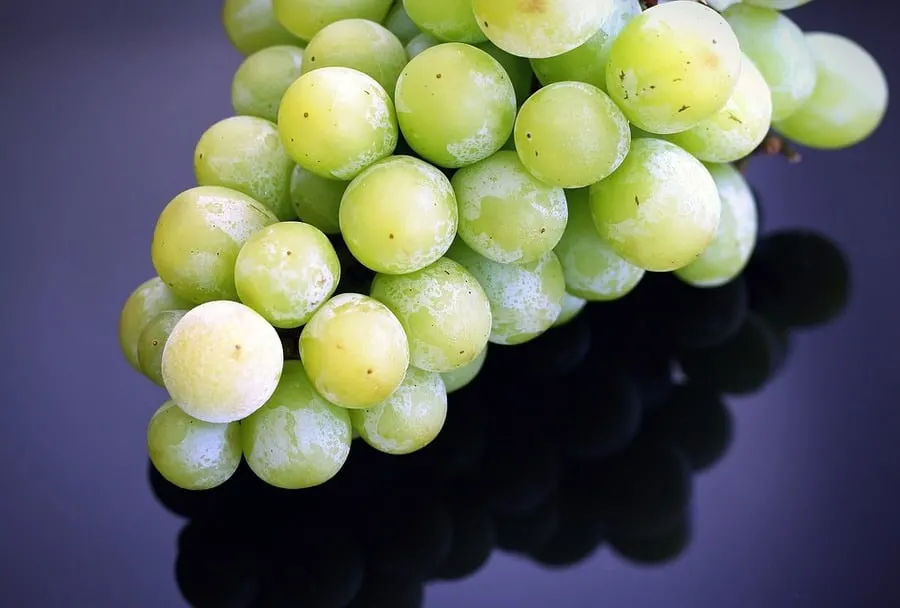As an Amazon Associate, I earn from qualifying purchases with no additional costs for you.
Most people understand that wine should never be frozen but stuff happens. But determining how long it takes to freeze wine can make a big difference and could help you save your wine before it hardens solid. Plenty of wine bottles are forgotten in the freezer or left out in the car overnight during a snowstorm. We are not here to shame anyone but merely save the day once the wine does freeze.
How long does wine take to freeze? A liquid’s freezing point is directly correlated to its alcohol content. Most table wines with an abv of 12-15% will freeze in about five hours in a standard kitchen freezer (which is usually set to around 0 degrees F). Wine will start to freeze once it reaches below 20° F.
The topic of freezing wine or allowing the wine to freeze is a taboo topic among many wine drinkers. I hold no such biases and I wanted to bring you simply the facts and maybe a little humor too about the topic. In this article, you’ll learn all about my wine-freezing experiment (gasp!) and how to save wine once it has become frozen.

TIP: If you want to check out the best refrigerator for wine storage, I recommend trying out the Avation (18 bottles) compressor refrigerator with Wi-fi smart app control cooling system. You can find this refrigerator by clicking here (Amazon link).
My Experiment of Freezing Wine
Hopefully, this next section does not ruffle too many feathers but I decided to purposefully freeze a bottle of wine. Don’t worry I used very cheap gas station wine so it wasn’t that big of a crime.
I bought two bottles of extremely cheap Merlot at the gas station and placed one in the freezer above my kitchen refrigerator and the other I would leave at room temperature to compare against afterward. I placed a food thermometer in the freezer for 4 minutes to see what the temperature inside it was.
Not the most scientific way of determining my freezer’s internal temperature but I got a reading of 2° F. I figure that is probably average for a kitchen freezer.
I placed one of the bottles of Merlot into the bottom level of the freezer so in case it did leak or explode, the mess would be more contained than if it was on the top level.
Of course, I put the bottle on its side as any good wine drinker should. I checked back periodically on the bottle to see its progress. By 3.5 hours the liquid inside was moving a lot less and was starting to gel up. By 5 hours, my bottle of wine was frozen solid as far as I could tell.
The bottle didn’t explode or crack and the cork didn’t push out due to pressure inside. I took the bottle out and placed it on my dining room table to thaw at room temperature. The next day, I pour 4 glasses of wine for my girlfriend and me to test. I tried to make it as blind of a survey as I could.
Honestly, I couldn’t tell any difference at all, and neither did she. The color in all four glasses was consistent and the flavor and scent were good enough for a gas station wine.
I don’t think freezing the wine did much of anything to it. I wouldn’t recommend freezing wine because bad things can happen but in this test, nothing bad happened.
Does Freezing Wine Affect Alcohol Content?
Freezing wine does not affect alcohol content, assuming the wine is thawed and consumed. If the wine were consumed while in a partially frozen state, there may be a nominal change in abv – this is because alcohol freezes at a different temperature than water, which is what creates this slushy mix, to begin with.
Wine has a much colder freezing point than water but since wine is made of mostly water anyway, it is the water inside that freezes. The average wine will freeze at 15-20° F depending on alcohol content. Generally speaking, the stronger the wine the lower the temperature needs to be to freeze it.
The alcohol content is directly correlated to freezing temperature and the time required for a wine to fully freeze solid. I have heard some people claim that freezing wine can affect the wine’s alcohol content. I have not found any real scientific evidence to back this claim up.
I can see why some people would believe that but freezing wine and thawing it does not chemically alter the structure of the wine nor does it increase or reduce the ethanol content inside. This may be true but I have found little to no scientific or anecdotal evidence to support it.
Recommendation box: Everything you need to enjoy your wine as much as possible. All recommended products are personally tested and regularly used by experts from this website (Amazon links):
> Ivation Wine Cooler – Energy-efficient wine cooler for 18 bottles with Wi-fi smart app control cooling system.
> Wine Rack – Beautiful, elegant wood rack for up to 7 bottles and the choice of vertical or horizontal storage.
> Durand Wine Opener – Classic vintage wine opener (we like all these classic staff).
> YouYah Iceberg Wine Decanter – The most beautiful and handy wine decanter we personally use.
> Bormioli Rocco Wine Glasses – A set of eight elegant and traditional wine glasses made in Italy.
> Vintorio Wine Aerator – Simple but really useful wine aerator for a reasonable price.
> The Original Vacu Vin Wine Saver – The best wine saver on the market in a package with two vacuum stoppers and two wine servers.
And if you want to become a true connoisseur of wine, we recommend reading the book Wine Folly: The Essential Guide to Wine (Amazon link), where you will find all the information you need about winemaking, wine varieties, flavors, and much more.
What Temp Does Wine Freeze?
Most wines reach their freezing point at around 15-20°F. Alcohol content strongly correlates to the freezing point and duration of time required to freeze the wine. The stronger the wine the longer it will take to freeze and the lower the temperature needs to be.
Generally speaking, the stronger the alcoholic beverage, the colder the temperature needed to turn it solid. If you want to learn about accidentally leaving your wine overnight in a freezing car and what to do to save that wine, check out this article I wrote.
TIP: Wine freezing or getting too cold isn’t as bad as many people seem to believe, though far from ideal. Find out more about temperatures of wine freezing in this article.
Is Cold or Heat Worse for Wine?
Generally speaking, cold will not damage a wine, whereas extreme heat can. Chilled or even frozen wine can often be gently brought back up to serving temperatures and enjoyed, while overheated or ‘cooked’ wine is considered a flaw that can chemically change the wine – and not for the better.

Many people think that freezing wine is much worse than storing it in too-warm conditions or applying direct heat to the wine. I’m here to tell you that without question, heat is much more damaging to wine than cold is. Scientific studies performed by Pérez-Coello & colleagues (2003) and by Scrimgeour & colleagues( 2015) confirm that storing wine in warmer temperatures can negatively impact wine.
You can freeze wine and as long as you thaw it responsibly, it should maintain its integrity, flavor, and color. Heat, on the other hand, is very different. Heat is very damaging to wine. Even storing a bottle of wine at 10° higher than is recommended long-term can have noticeable consequences.
Do not apply any heat sources to wine during the storage progress and do not try to defrost a frozen bottle in the microwave or run hot water over the bottle. Nothing good will come of it and you could also explode or crack the frozen wine bottle by applying hot water to it.
Can Wine Be Saved Once Frozen?
Wine absolutely can be saved once it has frozen solid. Freezing wine is less-than-ideal for the health of your wine but it is not a death sentence as many people will have you believe. As long as you properly thaw wine by letting it rest at room temperature, the wine should be perfectly fine to drink in a few hours.
Generally speaking, wine usually will not go bad if frozen. But it can certainly happen. To check your wine after you thaw it for signs it has turned, check the color, the scent, and the flavor.
If your red wine is no longer purplish-red but instead is more brownish, it likely has turned. If the wine smells sour or tangy and tastes similar or just not as you want it to, just toss it out. It sounds like your wine has crossed over to the dark side.
TIP: Most wines go bad once you pop the cork within a day or so. But a Coravin Wine Preservation system (available for a great price on Amazon) can extend the life of your opened wine for weeks or even months. It is awesome. You should check it out to see if it fits your lifestyle.
Proper Thawing Process & Time It Takes
To properly thaw wine after it has frozen solid, the best way to do so is simply to leave the wine to thaw slowly at room temperature. This is the ideal way to thaw wine.
If you need it thawed much faster, you can run it under cool or room temperature water which can help speed up the process some.
Honestly, if you need wine thawed right now, you shouldn’t have it frozen in the first place. Just go buy another bottle as that will be a lot quicker than letting it thaw. Whatever you do, do not apply any heat sources to the wine such as microwave defrost or warmer water.
This is a sure-fire method of ruining your wine. Speaking of keeping wine at room temperature, learn here if it is a good idea for long-term storage to keep wine at room temperature.
How Long Does It Take to Chill Wine in Freezer?
From room temperature, wine can be chilled in the freezer for around 20 minutes (lightly chilled) to closer to 30 minutes for fully chilled.
Remember that most wines, even reds, should be served slightly cooler than room temperature and can benefit from light chilling prior to serving.
How to Chill Wine Fast in Freezer?
From room temperature, wine can be chilled in the freezer for around 20 minutes to 30 minutes depending on desired serving temperature.
Setting a timer is always a good idea to prevent over-chilling or accidentally freezing – freezing can cause the liquids inside to expand and the bottle to shatter.
For even faster results, wrap the bottle in a damp cloth prior to putting it in the freezer.
TIP: When a bottle of wine is frozen, the liquid inside can expand and cause the glass to break or the cork to pop out. So, it’s crucial to safely unfreeze the bottle without damaging it. Find out proven tips in this article.
Related Questions About Wine Freezing
Will frozen wine explode?
The water inside the wine makes up a huge portion of the wine. As water freezes and expands, it could cause a wine bottle to explode. This does happen though it is a lot less common than many people fear.
The cork is the weakest part of a wine bottle and usually, the work will simply loosen or push out to accommodate the expanding wine. Rarely will a wine bottle crack or even explode under the pressure but it is possible.
Can you put wine in the freezer?
You can absolutely put wine (reds, whites, and sparking) in the freezer for a few minutes to help chill it prior to serving. That said, the freezer is not a tool meant for long-term wine storage. A specialty wine cooler is a much better option for storing and aging bottles.
Why should you put wine in a freezer?
I don’t think you should put wine in your freezer except for one specific reason. That reason is to chill Champagne or white wine before serving.
Wine can be chilled quickly in a freezer for about 20 minutes and make excellent serving temperatures. That said, countless frozen bottles started merely as bottles chilled for serving and were forgotten about. Just be careful.
TIP: Can you freeze champagne or boxed wine? Find out the truth about freezing champagne in this article and about boxed wines in this article.
Scientific Literature Referenced:
Pérez-Coello, M., González-Viñas, M., Garcı́a-Romero, E., Dı́az-Maroto, M., & Cabezudo, M. (2003). Influence of storage temperature on the volatile compounds of young white wines. Food Control, 14(5), 301-306. doi:10.1016/s0956-7135(02)00094-4 (via: ScienceDirect)
Scrimgeour, N., Nordestgaard, S., Lloyd, N., & Wilkes, E. (2015). Exploring the effect of elevated storage temperature on wine composition. Australian Journal of Grape and Wine Research, 21, 713-722. DOI:10.1111/ajgw.12196 (via Wiley)
TIP: Check out this page for a complete list of wine products and accessories I love. You’ll find my recommendations for wine refrigerators, decanters, and aerators and the best place to buy wine online. Click here to see the complete listing.
